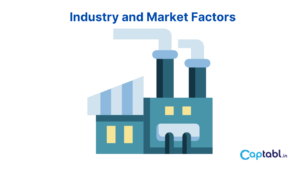Introduction:
Investing in startups requires a unique mindset and understanding of the investment timeline. Unlike traditional investments, startup investments often involve a longer timeframe for potential returns. In this article, we will explore the average timeframe for startup investments and shed light on the factors that influence the duration of your investment journey.
Startup Development Stages:
The timeframe for a startup investment can vary depending on the stage of development. Startups typically progress through stages such as ideation, seed stage, early-stage, growth stage, and, eventually, exit or liquidity events.
The duration of each stage can vary significantly, with early-stage investments often requiring a more extended time commitment. As an investor, it’s essential to align your expectations with the specific stage of the startups you invest in.
Time to Achieve Profitability:


Startups often prioritize growth and market penetration over immediate profitability in their early stages. It can take several years for a startup to develop and refine its business model, establish a customer base, and generate sustainable revenue.
As an investor, you should be prepared for the possibility that your investment may not yield immediate returns and be patient as the startup progresses towards profitability.
Average Investment Horizon:
The average investment horizon for startup investments is typically longer compared to traditional investments. It can range from three to seven years or even more, depending on the specific startup and its growth trajectory. Investors need to have a long-term perspective and be willing to hold their investments for an extended period to allow startups to reach their full potential.
Liquidity Events:
The ultimate goal for startup investors is often to realize a return on their investment through liquidity events, such as mergers, acquisitions, or initial public offerings (IPOs). However, these events typically occur in the later stages of a startup’s lifecycle. It’s important to note that the timing and success of liquidity events are uncertain and can vary greatly from one startup to another. Investors should be prepared for the possibility of a more prolonged investment horizon if a liquidity event takes longer to materialize.
Industry and Market Factors:


The timeframe for startup investments can also be influenced by industry and market dynamics. Some industries, such as technology or biotech, may have longer development cycles and require more time for regulatory approvals or product commercialization. Additionally, broader market conditions, economic cycles, and investor sentiment can impact the timing of liquidity events and the overall investment duration.
Individual Startup Factors:
Each startup is unique, and its specific circumstances and growth trajectory can significantly impact the investment timeframe. Factors such as the strength of the founding team, market demand for the product or service, competition, and execution capabilities can influence how quickly a startup progresses and achieves significant milestones.
Conducting thorough due diligence and evaluating these factors can help investors assess the potential investment duration.
Conclusion:
Investing in startups involves a longer investment horizon compared to traditional investments. Startups go through various stages of development, and it can take several years for them to achieve profitability and reach liquidity events.
As an investor, understanding the average timeframe for startup investments is crucial for setting realistic expectations and aligning your investment strategy accordingly.
Consider the specific stage of the startups, industry dynamics, and individual startup factors when assessing the potential duration of your investment journey. By having a patient and long-term perspective, you can navigate the unique timeline of startup investments and maximize your chances of success.

Pingback: Evaluating the potential exit opportunities for a startup investment - Captabl.in